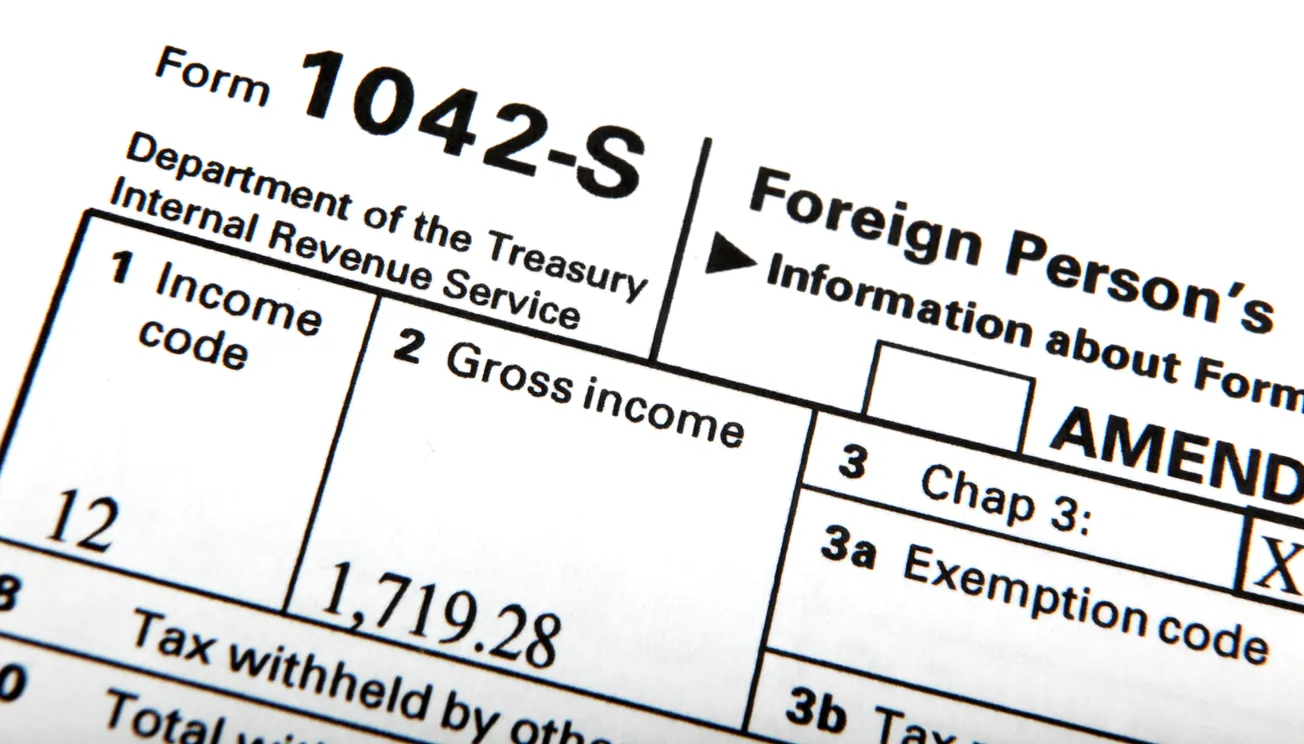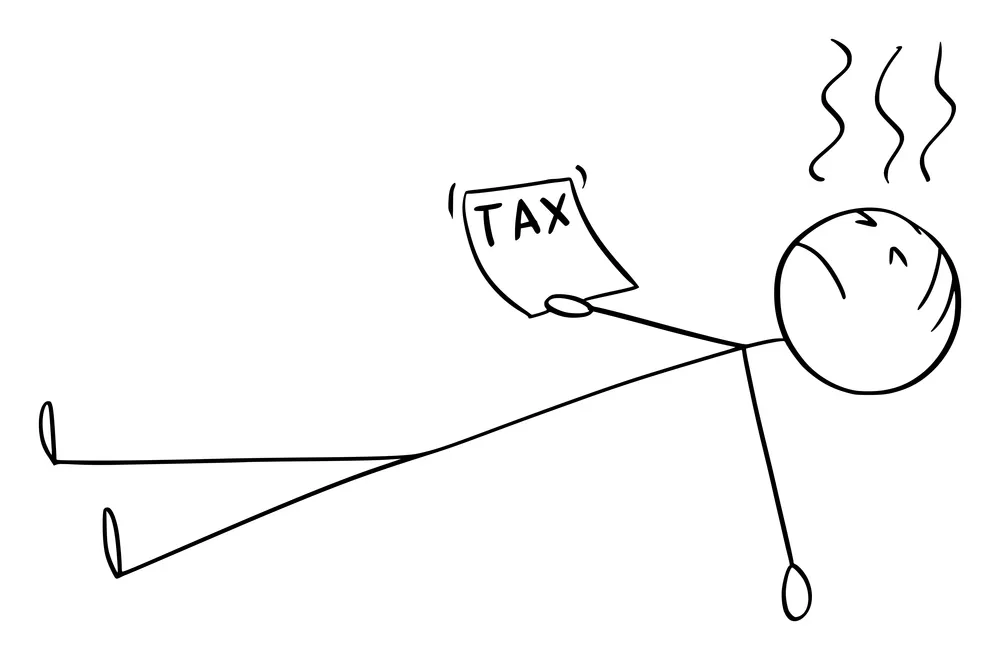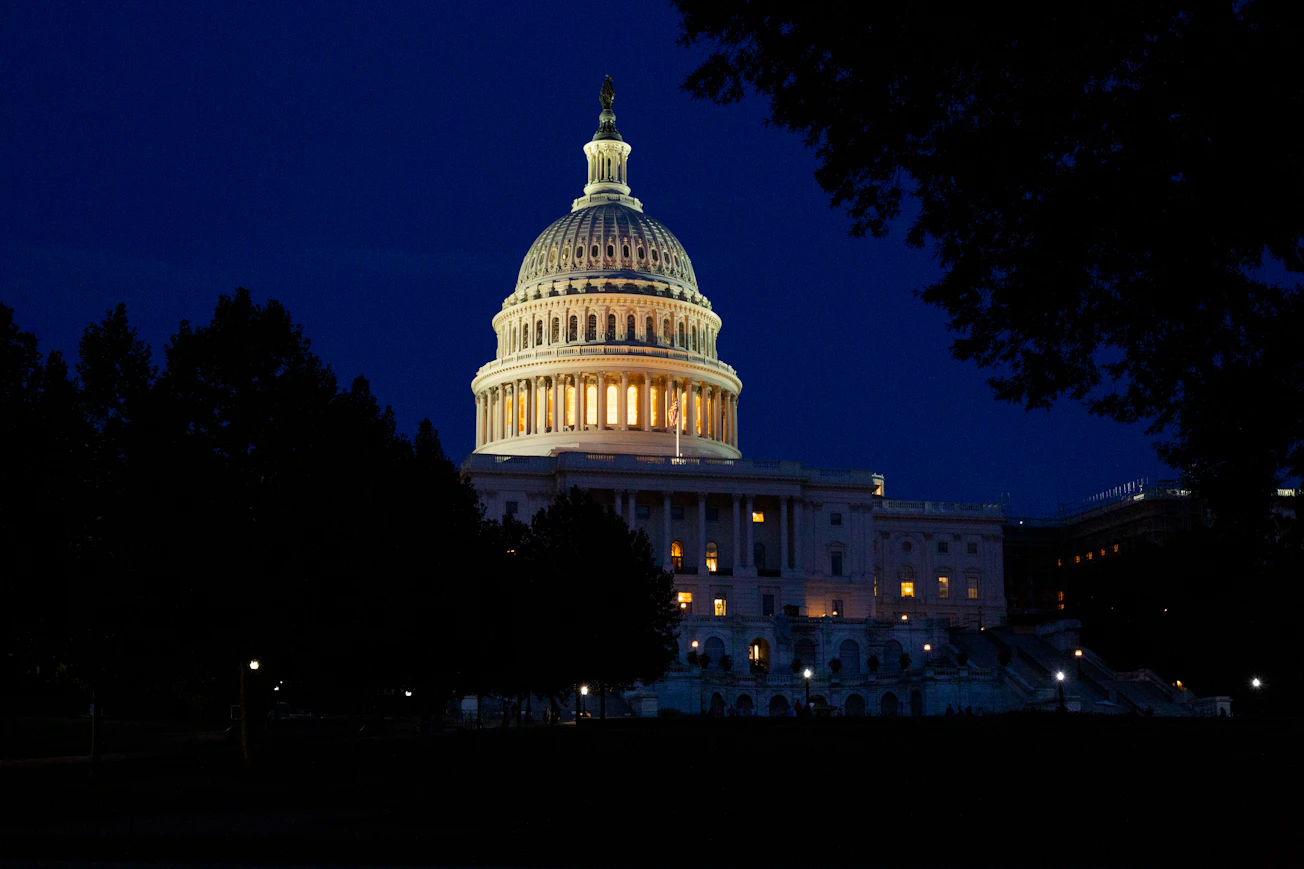By Mark Brandly, The Mises Institute
The income tax is “undoubtedly the most totalitarian of all taxes. — Murray Rothbard
At the founding of our country, the framers of our Constitution wisely withheld the right to tax incomes from the federal government. With the recent Revolutionary War in mind, the States were reluctant to cede strong taxing powers to a central state.
Given the enormous change in how this country regards the income tax, it is instructive to consider its origins. Studying this evolution may result in lessons that illuminate current debates.
The Founding
The constitution originally limited the federal government’s power to tax. Article 1, Section 2 stated that direct taxes shall be uniform among the States. Direct taxes were generally considered to be taxes such as head taxes or taxes on property and uniform taxes had to apportioned equally between the states according to population. Article 1, Section 8 gives Congress the power to tax “duties, imposts, and excises,” but reiterates the requirement for uniform taxation. The uniformity requirement was intended to restrict one region from imposing taxes on another region. The concepts of “direct” taxes and “uniform” later became crucially important in determining the constitutionality of income taxation.
The anti-tax mood of the country at that time is illustrated by the fact that direct excise taxes on spirits distilled from grain and on housing led to the Whiskey Rebellion in 1794 and the Fries Rebellion in 1798, respectively. Enforcement of the whiskey tax led to the forerunner of the Internal Revenue Service. Discontent with these tax policies supported by the Federalists, particularly those of President John Adams, led to the dissolution of the Federalist party and was a major factor in the support for Thomas Jefferson in the election of 1800.
Income Taxes: The Early Years
The country initially relied on tariff revenue to fund the government. But it was less than a quarter century after ratification of the Constitution to hear the first call for an income tax. The War of 1812 led to taxes on housing, land and slaves. Revenue needs led to Alexander Dallas, Secretary of the Treasury, indicating that an income tax might generate a revenue of three million dollars. The Treaty of Ghent ended the war and brought relief from the war taxes and eliminated any effort to impose an income tax. The tariff again became the primary source of revenue.
The tariff was an economic weapon that the industrialized north could use against the rural areas of the country. Northern business interests in conjunction with their minions in the government, were victimizing the rural south with the tariff. High tariff rates protected the northern manufacturing interests, and the South and West were paying a disproportionate share of this cost with high prices for imports and for finished goods from the north. This exploitation was an impetus for the war when the south seceded from the union.
The War Between the States brought the next proposal for an income tax. As Abraham Lincoln took office in 1861, he faced a federal debt of $75 million. Tariffs were doubled, excise taxes were raised, and bonds were issued. In addition, an income tax act was passed in 1861 as a substitute for a direct tax on land, which was objectionable to political interests in the West and Southwest. The act decreed a tax rate of three per cent on annual incomes over $800 and contained the first loophole. A reduced rate of one and one-half per cent was placed on the interest on government bonds, in order to facilitate the sale of bonds.
Before this act was put into effect, a second bill was passed in 1862. Union debt had increased to over $500 million, so the new act specified a progressive tax beginning with a three per cent rate on incomes of $600 and a top rate of seven and one-half per cent on incomes over $50,000. An 1864 act further increased the tax rates. It is important to note that the progressivity of the tax was due to revenue needs, and did not address any “fairness” concerns. After much debate, the income tax was scrapped in 1872.
The constitutionality of the income tax during the Civil War was not tested in court. Many agreed that allowing the tax in wartime was a necessity that could not be tolerated in peacetime.
The Rise of Populism
From 1874 to 1894, congressional proponents submitted 68 bills to restore the income tax. All of these proposals came from Southern and Western Representatives. Due to the Northern control of the seats of power in Congress, none of these came to a vote before 1894.
The rise of populism drove this tax sentiment. The protected northern industrial interests were on one side of the debate, and the rural, mainly agricultural, concerns were on the other side. The main income tax argument was merely an anti-tariff argument. Rural states saw the income tax as a way to eliminate the tariff and to get the northern states to pay their share of the tax burden. Pro-income tax populists believed that an income tax would only be applied to “the bloated rich” and that they would be exempt.
Tariffs were very high during the post-Civil War period even during times budget surpluses. This is not surprising since the war had largely been fought over the tariff issue and the pro-tariff side had been victorious.
In 1888, Benjamin Harrison was elected president on a protectionist platform. Under his watch, the McKinley Tariff Act of 1890 passed, increasing the average rate on dutiable imports to 48 per cent. The Republicans did not anticipate the political fallout of their legislation. In the elections of the 1890, the Republicans suffered a disastrous defeat, holding only one-quarter of the seats in the House of Representatives.
The 1894 Income Tax
The Democrats ran Grover Cleveland for president in 1892. Their anti-tariff platform was noted for its denunciation of “Republican protection as a fraud, a robbery of the great majority of the American people for the benefit of a few.” It also termed the McKinley Tariff the “culminating atrocity of class legislation.” Cleveland himself called the tariff “ruthless extortion.” Cleveland easily beat Harrison in this race.
A small but growing deficit made it difficult for Cleveland to meet his pledge for tariff reduction. An income tax seemed to be a means of reducing tariffs while balancing the budget and he called for “a small tax upon incomes” in December of 1893. Opponents called a peacetime income tax “socialistic” and warned that the Supreme Court would declare such a tax unconstitutional.
The House version of the 1894 Wilson-Gorman tariff bill eliminated the McKinley tariffs and instituted an income tax of two percent on incomes above $4,000. Ninety-eight per cent of the populace was completely exempt from this tax. The act passed easily and the tax proponents jubilantly carried the chairman of the House Ways and Means commit, William Wilson, out of the hall on their shoulders. When the Senate debated the issue, however, tariff rates were increased. Cleveland had been betrayed by protectionist forces within his own party. If he vetoed the bill, the McKinley tariff would continue, and, he would contradict himself by signing it. Cleveland refused to sign the bill, but allowed it to go into law without his signature.
The 1894 tax was immediately challenged in court. The Supreme Court took up the issue in Pollock v. Farmers’ Loan and Trust Company. The court declared the tax unconstitutional, by a vote of five to four, on the grounds that it was a direct tax not assessed uniformly. Tax proponents argued that the original intent of the constitutional writers was for direct taxes to be considered taxes on property, not on income. The majority opinion, however, viewed the income tax as a direct tax.
Although the constitutional question turned on the definition of “direct” taxes, those pleading their cases before the court introduced ideological arguments into the debate. Populists, such as James C. Carter, asserted that the tax was justified as a weapon to be used against the plutocracy and that the court should “accept the voice of the majority.” An opposing attorney, Joseph P. Choate, argued that the court needed to protect the rights of private property.
The arguments defending private property also show up in the decision of the court. Writing for the majority, Justice Stephen J. Field said “the present assault upon capital is but the beginning. It will be but a stepping stone to others, larger and more sweeping, till our political contests will become a war of the poor against the rich, a war constantly growing in intensity and bitterness.”
Justice Edward White, dissenting, pointed out that the decision was “fraught with danger to the court, to each and every citizen, and to the republic.” If the conclusions of this court depend on the personal opinions of its members, it will become a “theatre of political strife.” Strict constitutionalists should be slow to applaud this decision that was explicitly grounded on ideological considerations.
The Sixteenth Amendment
Unfortunately, the Republicans regained the White House in 1896. The call for income taxes waned as the “progressive” reformers of the era turned to other matters, particularly the antitrust battle. There was still some support for an income tax and in 1904, William Jennings Bryan was even able to get support for an income tax plank in the Democratic platform.
Republican President Theodore Roosevelt revived the idea in a speech on the Fourth of July. He stated that taxation may be desirable for limiting large fortunes and, according to an account of the time, “declared vehemently for a graduated income tax…Democrats were jubilant…smiles froze on the faces of Republicans.” Although no other prominent Republican showed much interest, the debate was renewed.
In 1909, William Howard Taft, a Republican but arguably the least likely candidate to approve of an income tax, succeeded Roosevelt as president. It seemed unlikely that a tax revolution was at hand.
Taft took office in the middle of a tariff battle and a revenue shortfall. His own party was split on the tax/tariff issue. The Democrats were pushing for an income tax bill, expecting the court to reverse itself on this issue. To placate both sides, Taft proposed a corporation “excise” tax (actually an income tax under another name) of one per cent of net incomes in excess of $5000. The revenue from the excise would relieve the revenue problem and defuse the tariff debate in his own party. The Supreme Court later approved the excise tax, indicating that it may have sanctioned a tax on personal incomes.
To quiet the Democrats, Taft proposed an amendment authorizing Congress to collect income taxes. The amendment would relieve Congress of following the uniformity clause regarding direct taxation. He believed that this was a harmless gesture and that the amendment would never succeed. A leading proponent for an income tax, Robert La Follette, agreed that “the success of this amendment is improbable,” and was against the amendment.
The Senate passed the amendment unanimously. In the House, the vote was 318 For, 14 Against, and there were 55 abstentions.
The strength of the tax movement in the states was highly underestimated by parties on both sides of the debate. The amendment went to the states late in 1909. Alabama ratified it, unanimously, before the year was out. Eight others followed in 1910, and the required 36 states ratified the amendment by 1913. On February 25, 1913, the Sixteenth Amendment was adopted.
Democrats held the presidency, since Woodrow Wilson had been elected in 1912, and controlled both houses of Congress. The debate over an income tax bill began immediately, and the 1913 Revenue Act was passed on October third of that year. It specified a one per cent tax rate with a $3000 personal exemption. A progressive “surtax” ranging from one to six per cent was also included, resulting in a top rate of seven per cent and the tax was retroactive to the day that the amendment was ratified. Tariff reductions were also in the bill. In fact, the debate in Congress centered around the tariff issues.
By 1916, World War I had reduced trade, thereby reducing tariff revenue, and business profits were down which decreased corporate tax revenue. This coupled with increased spending for war preparation created a deficit that the income tax was called upon to relieve. The 1916 Revenue was the first income tax not explicitly linked to the tariff. The bill increased the top rate to 15 per cent. It also included the first war profits tax.
By 1917, due to increased revenue needs, a new act was passed increasing the top rate to 67 per cent and cutting the personal exemption by two-thirds. An individual’s first $1000 in income was now exempt. The very high top rates allowed the Congress to expand the tax base by reducing the personal exemption.
The Revenue Act of 1918 again increased the tax rates. The lowest rate was upped to six per cent, and the highest increase to 77 per cent. Again, the high top rate generated little revenue, and was mainly political cover for increasing the lower rates. In just five years, a tax that was promised to be a small tax on the rich became a substantial tax applying to a broad base.
After the war, tax rates decreased, but the federal government still relied heavily on the corporate and personal income tax for its revenue. In 1925, nearly half of federal receipts were derived from these taxes. Once the revenue capabilities became apparent, there was little chance that Congress would forego opportunities to return to a very limited income tax scheme.
Lessons
This outline of the establishment of the sixteenth amendment to the Constitution leads to a few tentative conclusions.
First, the framers of the Constitution specifically limited the taxation powers that they accorded Congress. They argued that Congress was ill equipped to restrain itself. Given the powers of the Sixteenth Amendment, Congress established tax rates formerly considered beyond reasonable bounds. This should be a warning when Congress promises to restrain itself in other matters, such as any promises regarding taxes spending in the current budget debate.
Second, one danger of replacing one tax with another is that it is no longer necessary to rely on the initial tax to generate revenue. Implementing the income tax reduced the need for tariff receipts. This freed up the tariff to be used for protectionist measures with little need to consider the revenue consequences. Recent tariff debates center on free trade versus protection arguments, and have little to do with tax revenue consequences. Giving the government multiple tax means allows it to use some tax methods for punitive ends.
Third, the income tax movement was driven by the motive to shift the tax burden from one group, the Southern and Western states, to another, the Northern industrial states. Those believing that they would escape income taxation anticipated incorrectly. Tax burden shifting is a dangerous scheme that could, and in this instance did, backfire.
Dr. Mark Brandly is a Fellow of the Mises Institute.
Original article link









